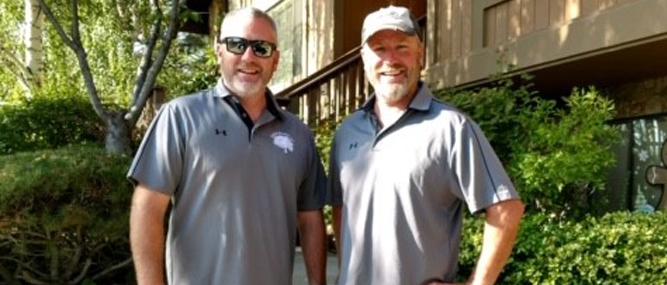Pallet Enterprise: When did you and your brother first start working with pallets and when did you take over the business?
Stephan: It’s been solely my brother and me since 2012. We’re a family business. My dad retired, and my older brother pursued ranching and other avenues. So, it’s a cool dynamic to be with your twin brother every day. We used to have to work on pallets when we were eight-years old in Colorado. Before we could go out and play football or whatever, we had to tear down pallets and hammer down the boards so my father could build his pallets. When employees start talking now about how hard the job is, when a lot of the work is automated, they have no idea of how hard it used to be when everything was done manually.
Pallet Enterprise: What is one of the biggest challenges in the industry right now? Is it labor?
Stephan: Labor is the biggest challenge that we have – labor and the cost of labor. It’s the same as everywhere else. You can’t get people to come in the door, and you can’t get people to stay in the door. And the wages are going through the roof. In our area, the cost of living is drastically increasing. So, it’s stiff competition for employees because we’re all digging from the same pool of labor, whether it’s a standard warehouse or a manufacturing facility. And there’s not enough people in this area we can pull from.
Pallet Enterprise: Do you have any new products or services?
Stephan: We started recycling cardboard and plastic in 2012, but everything else we’ve been doing for a while. The treating and grinding pallets and new and used, that’s been our focus since we started.
Pallet Enterprise: What do you like most about working in the industry?
Stephan: I enjoy working with the employees that we do have. I enjoy working with my twin brother and being a family business. My family and his family depend on this company. We have a great customer base that I enjoy seeing.
Pallet Enterprise: How has your raw material situation changed recently?
Stephan: It is a lot better now than it was last year at this time. You couldn’t get raw material last year or you couldn’t touch it because it was so expensive. A lot of customers were able to switch to used pallets because new pallets were so expensive. The hardest thing about raw materials is just trucking; the mills have the lumber, it’s just the trucking side due to labor.
Pallet Enterprise: What do you think your business will look like in 5-10 years?
Stephan: We’re doing automation every single year, and we’re hoping to streamline as much as we can. We’ve put in a repair line and have a new Viking nailing machine. So, more automation is the way we’re trying to handle the labor challenge.




